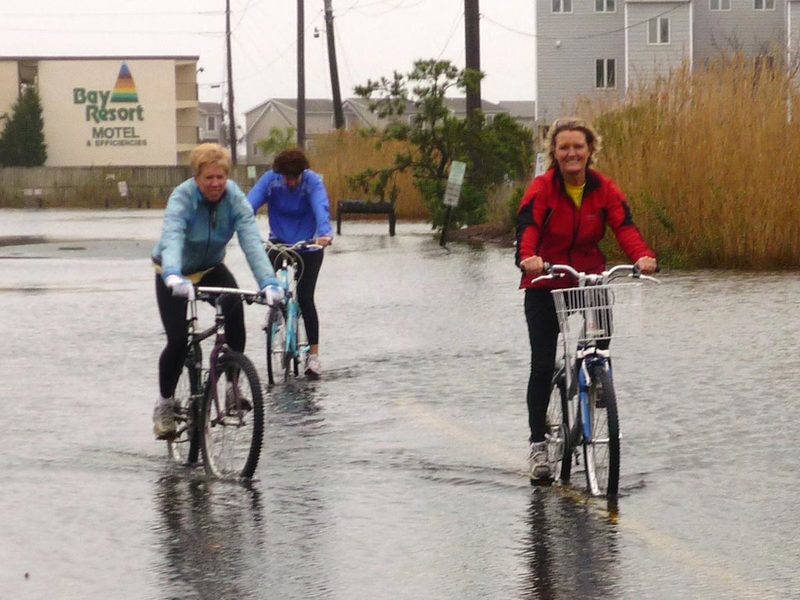Coming off a spring season crammed with wicked weather events across the nation - tornadoes in the midwest and northeast and flooding across many states - hurricane season has now caught the attention of meteorologists.
While this spring has been more disastrous weatherwise than past years, meteorologists are expecting a quieter hurricane season.
Paul Walker, senior meteorologist for Accuweather, said weather predictions estimate 15 named tropical systems in the Atlantic basin, with eight of them becoming hurricanes and four becoming major hurricanes. Major hurricanes have winds greater than 110 miles per hour, Walker said.
"Normally there are 10 systems, with six hurricanes and two major hurricanes; but last year we saw 19 systems, with 12 hurricanes and five majors," Walker said. "This year we are predicting a less active season, but still above normal."
To estimate the intensity of hurricane season - which runs from June 1 through Wednesday, Nov. 30 - meteorologists look at climate signals, including water temperatures and upper air patterns.
On Delmarva, hurricanes generally don't have as much impact as nor'easters. Nor'easters are cold-core systems, generally hitting the region in the fall, winter and spring. Hurricanes, in comparison, are warm-core systems, hitting during the summer and fall.
"The effects can be the same, but the core is the difference," Walker said. "There are a couple tropical systems being watched right now; we are already starting to see the tropical waves move across the Atlantic. By watching the upper air patterns, it leads us to believe this would be an active season."
According to the National Oceanic and Atmospheric Administration, tropical systems acquire a name when sustained winds reach 39 mph. They become hurricanes when winds reach 74 mph and become major hurricanes when winds increase to 111 mph.
Christine Maiese of the American Red Cross of the Delmarva Peninsula said there are three easy steps to stay prepared in the event of a hurricane:
• Make a kit. Include bottled water, nonperishable food, flashlight, battery-powered radio, first aid kit and medical prescriptions. She recommends a gallon of water per person, per day.
• Make a plan. Identify a family meeting place in case a storm hits when family members are not all together.
• Be informed. Listen to local stations and emergency channels to know what is going on and if evacuation is recommended.
"When hurricanes affect our area, they present regional challenges - evacuations, displaced populations, sustained winds, flooding, and power outages can affect all our states and jurisdictions," said MaryAnn Tierney, Regional Administrator for Federal Emergency Management Agency Region III, which includes Delaware. "Citizens and all levels of governments must prepare for this upcoming hurricane season."
Tierney recommends residents take charge of their own personal safety now, before a storm system arrives. She said citizens should be prepared for evacuation and know where important files and items are, including, checkbooks, driver's license, credit card information, birth certificate, social security cards and other identity documents.
When a hurricane approaches, the Coast Guard recommends boaters be prepared by securing boats and equipment. Large boats should be moved to inland marinas, and boats that can be trailered should be moved from the water to a place that is not prone to flooding.
During a storm event, everyone is urged to stay away from beaches where sudden gusts and strong waves can pull even the strongest swimmer out to sea. Rip currents and undertows can also arrive before the actual storm arrives, pulling swimmers under if they try to fight the current.
For more information, go to www.nhc.noaa.gov, www.ready.gov, www.waterdamagedefense.com/pages/emergency-preparedness-hurricane-prepration and www.floodsmart.gov. Business owners and managers can learn how to prepare their businesses by visiting www.ready.gov/business.
















































